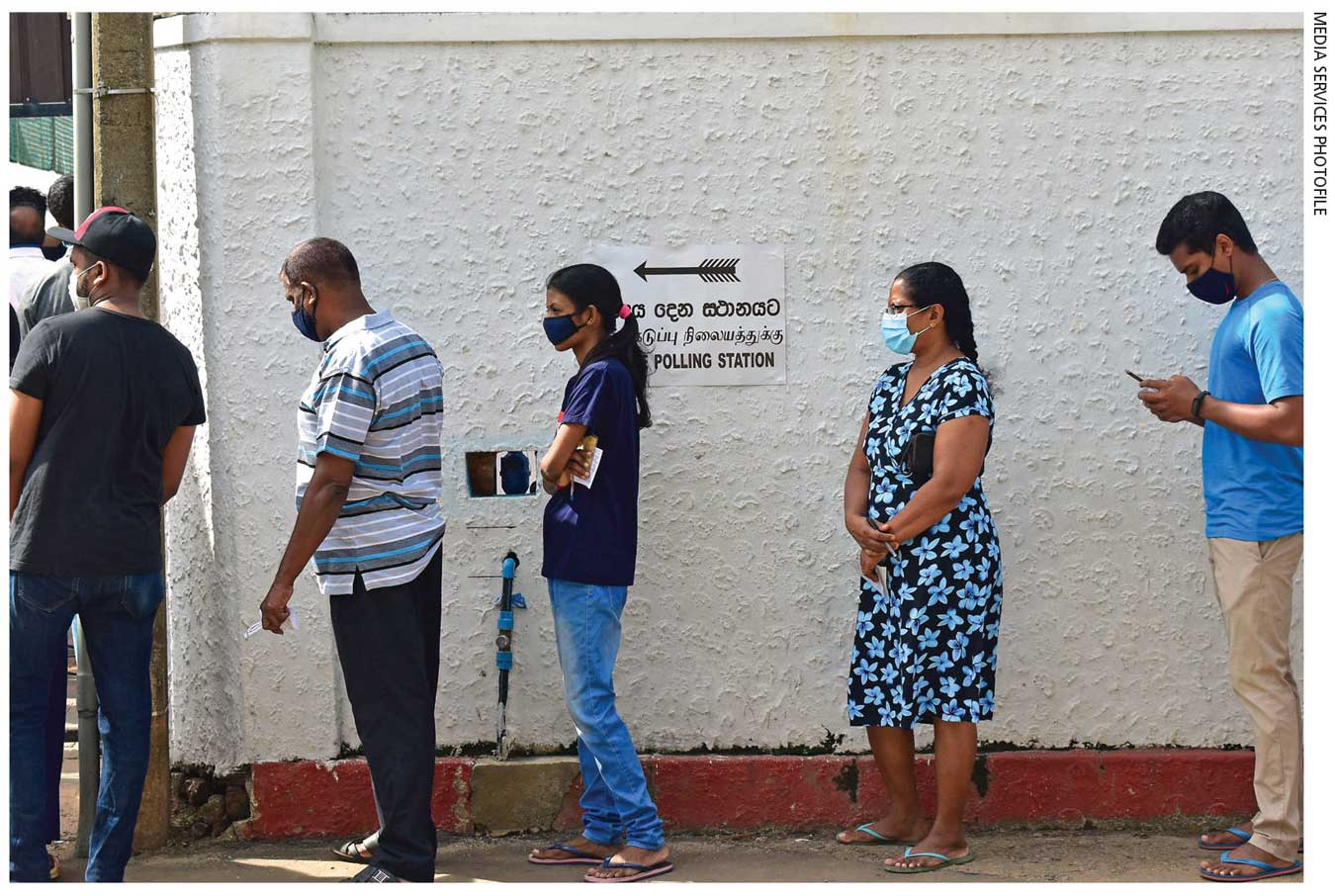
PEOPLE’S INTERESTS MUST LEAD
Dr. Jehan Perera stresses that power mustn’t overshadow the people’s needs
Ranil Wickremesinghe became Sri Lanka’s eighth executive president and finally won the prize in his third attempt. He lost in 1999 to Chandrika Kumaratunga and again in 2005 to Mahinda Rajapaksa. On both occasions, he was dealt unlucky blows.
Kumaratunga gained a sympathy vote after the LTTE attempted to assassinate her during one of her campaign rallies and caused serious injury to her. The LTTE intervened again in 2005 to scuttle his election bid when it ordered the Tamil people to boycott the presidential election.
This time however, he won a convincing victory through an election held in parliament rather than by the people at a presidential poll.
The parliamentary majority that elected the president is based on an electoral mandate given three years ago. The problem of legitimacy of the newly elected president and the government he appointed, which consists of ministers of the previous government, is compounded by allegations that swirl around the election process.
A presidential candidate, following his defeat in parliament, publicly alleged that votes were purchased. The margin of defeat of the opposition candidates was unexpectedly large. Since then, there have been social media posts that enormous sums of money were negotiated to cross party lines ahead of the vote.
The election result in parliament shows that the ruling party held its ranks despite the battering it experienced in recent months. Results show that very few of its members deserted to join Dullas Alahapperuma who broke away from the ruling party to contest the presidential election.
On the other hand, the leadership of the main opposition parties including the main Tamil and Muslim political parties rallied behind Alahapperuma.
As an immediate measure, Wickremesinghe should address the needs of a divided polity, which was evident when the main opposition parties united against his candidacy.
In particular, it is necessary to keep in mind what a wide cross section of the population had participated in the protest movement. The aragalaya has the ability to melt into the homes of Sri Lankans, give the impression of a return to normalcy and then reemerge as a massive tide of people out on the streets, when the occasion demands and a date is fixed.
President Wickremesinghe and his government must handle the protest movement with care. With the economic factors that mobilised the protests still very much in evidence, it remains a potent force.
Meanwhile, the current government is seen by many as illegitimate with a nullified or lost mandate even though it is a legally constituted entity based on a popular mandate obtained at elections held three years ago. It is a government with a president that’s legally elected by parliament but a parliament that has lost its mandate.
Under these circumstances, the government needs to rethink its heavy-handed approach when dealing with the protest movement. The practice of repression by a government that is perceived by many to be illegitimate, even though legally constituted, is a recipe for further instability, which the country cannot afford.
The World Bank, the IMF and long-term friends of the country such as Japan have made it clear that they will only step in to support the country if it is politically stable, shows transparency and accountability, and has a government that has the people’s confidence and trust.
There’s an immediate need to restore political stability. The government needs to find ways and means of engaging with the protesters in a nonviolent manner and address the root causes that brought tens of thousands of citizens onto the streets throughout much of the island.
People’s legitimate demands should be handled by addressing their concerns and not by engaging in witch hunts to silence their dissent.
Wickremesinghe’s inaugural address to parliament set forth a vision of good governance and civility that will stand among the most outstanding in the world. Translating these words and sentiments into facts on the ground requires a political consensus that views the people’s interests rather than power politics as the foremost priority.
Overcoming the economic difficulties in Sri Lanka and its present inability to earn more than it spends will require significant restructuring of the economy and the living standards of people. And this will require a government that has the people’s backing and a fresh mandate, after the basic features of a solution to the political and economic problems are put in place.
This content is available for subscribers only.






